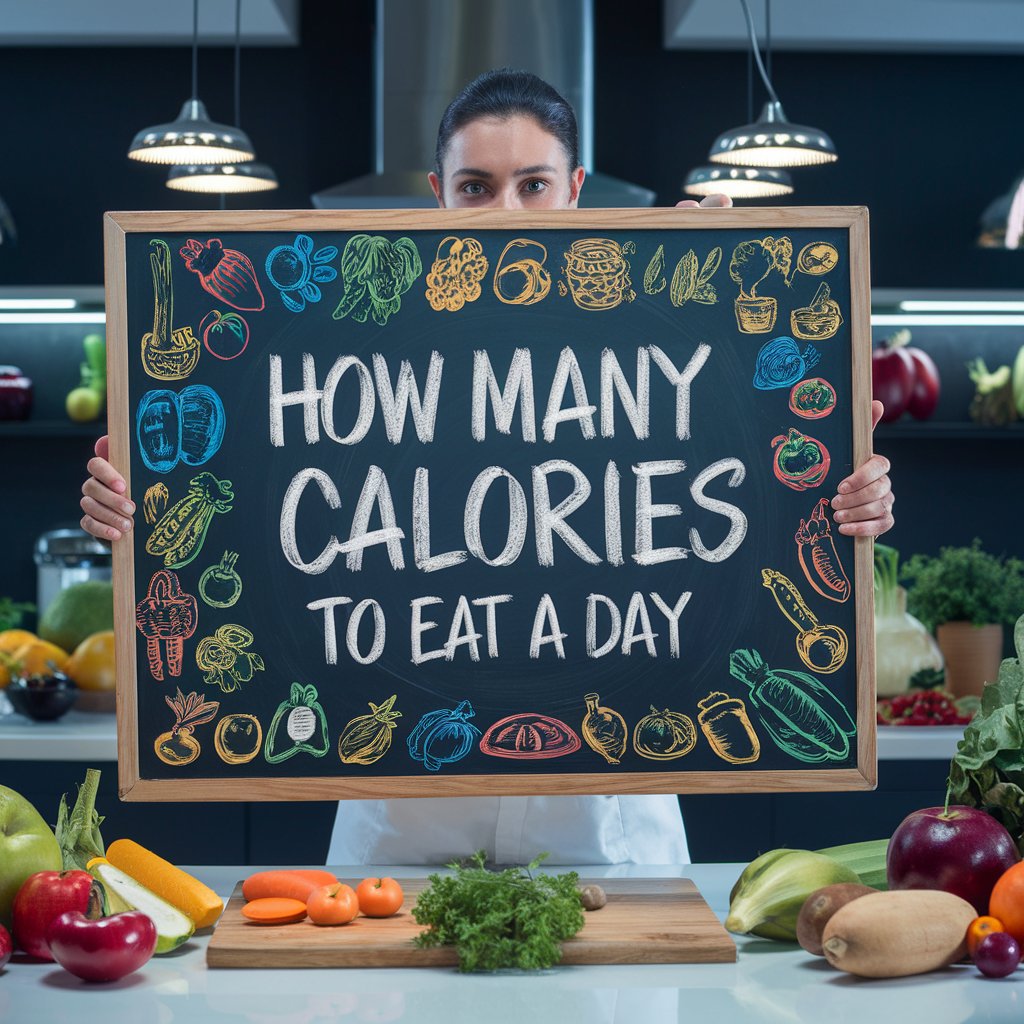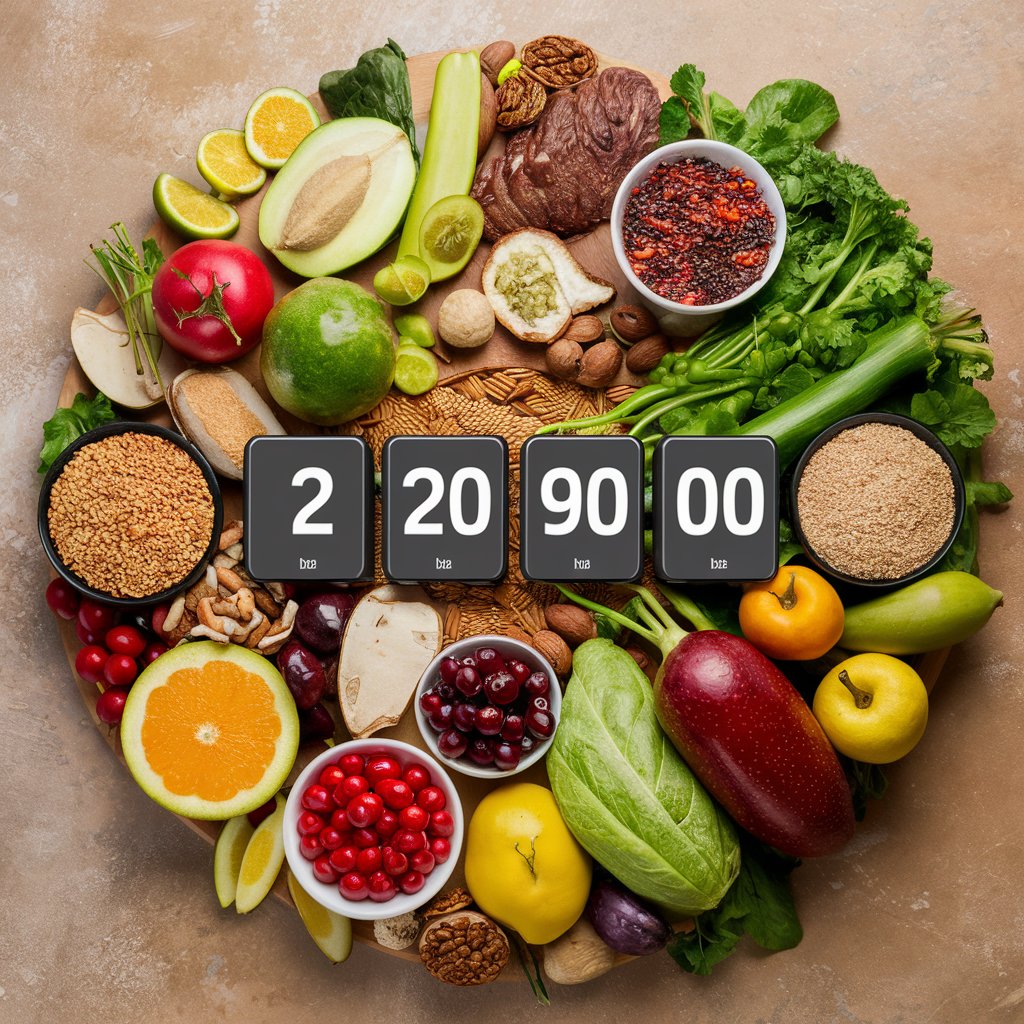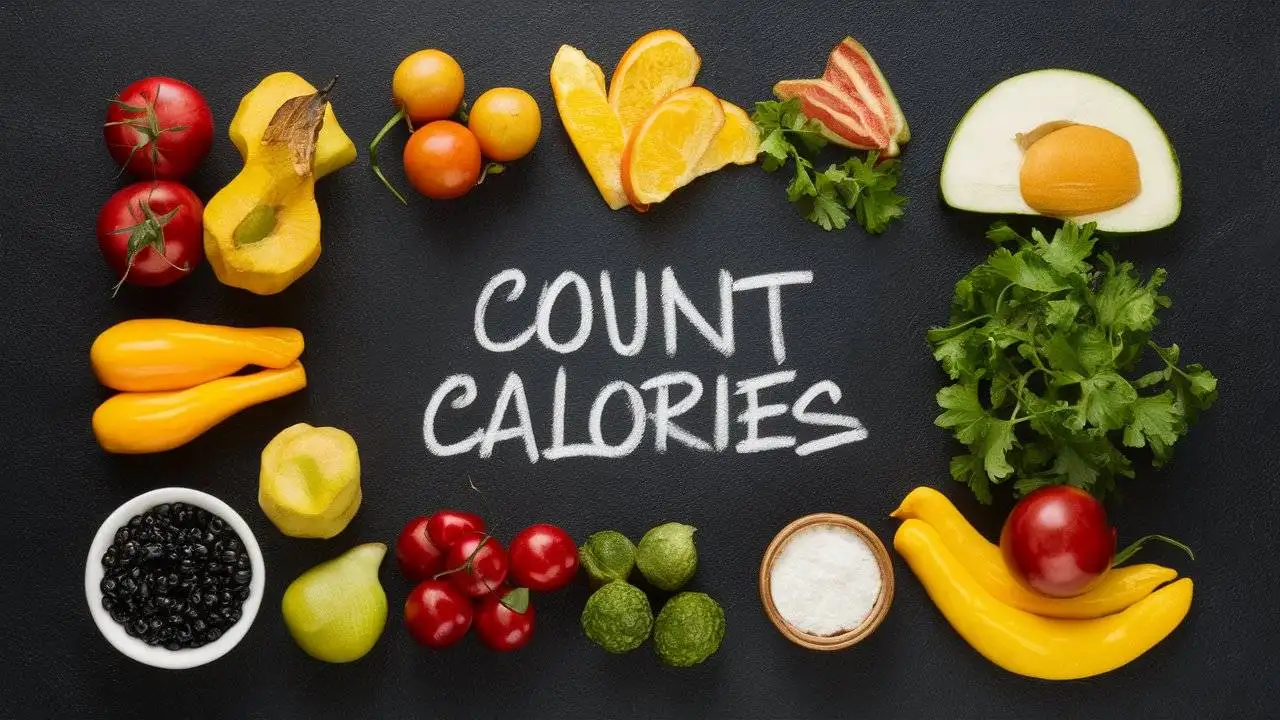Counting calories might sound like a daunting task, but it’s a powerful tool for achieving your health and fitness goals.
Whether you want to lose weight, gain muscle, or maintain your current weight, understanding how many calories you’re consuming can make all the difference.
By keeping track of your intake, you can make informed decisions about your diet and ensure you’re getting the right amount of energy each day.
In this guide, we’ll break down the basics of calorie counting, provide practical tips for tracking your food, and share some dietary advice to help you stay on track.
Let’s dive in and make calorie counting an easy and effective part of your healthy lifestyle!
What are Calories?
Calories are the units of energy that we get from food and drinks. Everything you consume, from a crisp apple to a hearty steak, contains calories.
These calories are what fuel our bodies, enabling us to perform daily activities, exercise, and even sleep. Essentially, calories are the energy currency for our bodies.
Understanding calories is crucial because the amount of calories we consume directly impacts our weight and overall health.
Consuming too many calories can lead to weight gain, while consuming too few can leave us feeling tired and weak.
Striking the right balance is key to maintaining a healthy weight and feeling our best.

Should I Keep Track of Calories?
Tracking calories can be beneficial, especially if you have specific health or fitness goals.
Whether you want to lose weight, gain muscle, or simply maintain your current weight, knowing how many calories you’re consuming can help you make informed decisions about your diet.
It’s not about being obsessive, but rather about gaining a clearer understanding of your eating habits.
However, it’s important to note that not everyone needs to count calories. Some people might find it stressful or unhelpful.
If you prefer a more intuitive approach to eating, that’s okay too. The goal is to find a method that works best for you and your lifestyle.

How Many Calories to Eat a Day
The number of calories you should eat each day varies based on factors such as age, gender, activity level, and overall health.
Adult males require 2,200–3,000 calories daily on average, while adult women require 1,800–2,400 calories daily on average.
These are general guidelines, and individual needs can differ significantly.
To determine your specific calorie needs, you can use online calculators or consult with a healthcare professional.
These tools take into account your personal details and lifestyle to give you a more accurate estimate.
Remember, it’s important to listen to your body and adjust your calorie intake as needed to ensure you’re meeting your nutritional needs and health goals.

How Many Calories to Eat to Lose Weight
Losing weight generally involves consuming fewer calories than your body needs to maintain its current weight. Your body is forced to burn stored fat for energy as a result of the calorie deficit this causes.
A common recommendation is to reduce your daily intake by 500 to 1,000 calories, which can lead to a safe and sustainable weight loss of about 1 to 2 pounds per week.
However, it’s crucial not to cut calories too drastically, as this can negatively impact your health and metabolism. Aim for a balanced approach, incorporating nutrient-dense foods that provide essential vitamins and minerals.
Consulting with a healthcare professional can help you create a personalized plan that aligns with your weight loss goals and ensures you’re getting the nutrients you need.
How to Count Calories
Counting calories doesn’t have to be complicated. With a few simple strategies, you can easily keep track of your intake and stay on track with your goals.
Check the Labels on Shop-Bought Foods
One of the easiest ways to count calories is to read the nutrition labels on packaged foods. These labels provide detailed information about the calorie content per serving, as well as other nutritional information like fat, protein, and carbohydrate content.
Pay attention to the serving size to ensure you’re accurately tracking your intake.
Try Weighing Your Portions
Weighing your portions can help you get a more accurate idea of how many calories you’re consuming. Kitchen scales are affordable and simple to operate.
By measuring your food, you can avoid underestimating or overestimating your portions, which can significantly impact your calorie count.
Keep a Food Diary
A food diary is a great way to track your calories. You can keep track of everything you eat and drink during the day using a notebook or a smartphone app.
There are many apps available that can make this process easier by providing calorie counts for a wide range of foods and allowing you to scan barcodes for quick entries.
Keeping a food diary can also help you identify patterns in your eating habits and make healthier choices.

How Many Calories to Have Per Meal to Lose Weight
To lose weight, it’s helpful to distribute your calorie intake evenly throughout the day. This can help keep your energy levels stable and prevent overeating.
| Men | Women |
| For men, a good target might be around 500 to 750 calories per meal, depending on total daily intake and activity level. This can be adjusted based on individual needs and goals. | For women, aiming for 400 to 650 calories per meal is often a good range. Again, this will vary depending on total daily intake and personal factors. It’s important to ensure each meal is balanced and nutrient-dense. |

Dietary Advice
When counting calories, it’s not just about the numbers. It matters just as much what kind of calories you eat. Here are some tips to help you make healthier choices:
- Choose whole foods: Give priority to unprocessed, minimally processed foods such as fruits, vegetables, whole grains, lean meats, and healthy fats. These foods provide essential nutrients and are typically lower in calories than processed options.
- Stay hydrated: Drinking plenty of water is crucial for overall health and can help you feel full, potentially reducing your calorie intake.
- Plan your meals: Planning your meals and snacks in advance can help you make healthier choices and avoid the temptation of high-calorie convenience foods.
- Listen to your body: Pay heed to your body’s signals of hunger and fullness. Eating when you’re hungry and stopping when you’re full can help you maintain a healthy weight without having to rely solely on calorie counting.
- Seek professional advice: If you’re unsure about your calorie needs or how to create a balanced diet, consider consulting with a registered dietitian or nutritionist. To assist you in reaching your health objectives, they can offer individualized advice and assistance.

FAQ About Calories counting
What if I find calorie counting too stressful?
If counting calories feels overwhelming, try focusing on eating whole, nutritious foods and listening to your body's hunger and fullness cues. You can still achieve your health goals without strict calorie tracking.
How accurate are calorie counts on food labels?
While food labels provide a good estimate, they can sometimes be off by a small margin. Use them as a guide, but don't stress over minor inaccuracies.
Can I eat out and still count calories?
Yes, many restaurants provide nutritional information on their menus or websites. Look for this information or choose dishes that are similar to what you would eat at home and estimate the calories based on portion size and ingredients.
Is it necessary to count calories forever?
Not necessarily. Once you have a good understanding of portion sizes and your dietary needs, you might find you can maintain your weight without strict calorie counting. It all comes down to striking a balance that suits you.
Key Takeaways
- Counting calories can help manage weight and improve health.
- Recognize calories and the effects they have on your body.
- Determine your daily calorie needs based on personal factors.
- Use strategies like reading labels, weighing portions, and keeping a food diary.
- Focus on the quality of calories by choosing nutrient-dense foods.
- Stay hydrated and plan your meals ahead of time.
- Listen to your body’s hunger and fullness cues.
- Seek professional advice for personalized dietary guidance.
Counting calories can be a game-changer for your health and fitness journey.
By understanding your daily calorie needs and keeping track of your intake, you can make more informed decisions about your diet.
Remember to focus on the quality of your calories, choosing nutrient-dense foods that support your overall well-being.
With simple strategies like reading labels, weighing portions, and keeping a food diary, you can easily manage your calorie consumption.
Whether your goal is to lose weight, gain muscle, or maintain your current weight, calorie counting can help you achieve lasting results.
Accept these pointers, follow through on them, and reap the rewards of a more balanced, better lifestyle.




